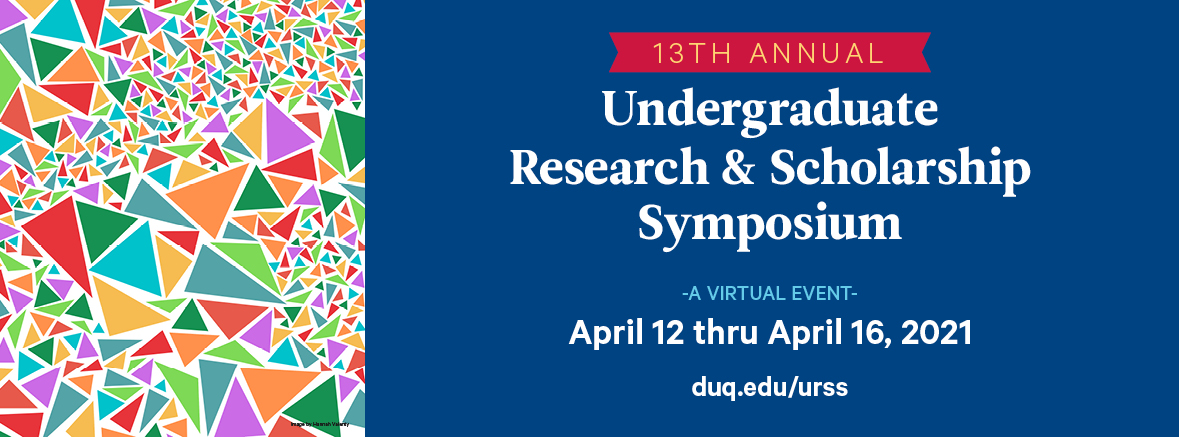Presenter Information
Amber DelPrince (Spanish Department and Pre-Med Program), Melanie Tommer (Department of Physical Therapy), Claire Boe (Department of Physical Therapy), Jessica Spirnak (Department of Physical Therapy), Karl Jancart (School Psychology), and Regina Harbourne, Ph. D (Department of Physical Therapy)
Abstract
Background: Focused attention (uninterrupted attention to task) and understanding of object permanence (knowledge that objects exist when not seen) are two constructs in infancy that build future cognitive skills. The relationship between the two in infants with delays is poorly understood.
Purpose: The purpose of this study was to examine the relationship of early focused attention at the point of early sitting independence to object permanence skill one year later in infants with motor delays.
Methods: 15 infants (aged 8-16 months) with motor delays were scored on an analog scale of 1-5 (5 = greatest focus) to indicate their level of global focused attention during two specific object permanence tasks, a switch task and a displacement task. All infants were enrolled in a larger trial aimed at improving motor development. Object permanence testing was conducted after 12 months. The scores were correlated using a graphing method.
Results: Increased focused attention on the displacement task at 1.5 months correlated strongly to overall object permanence at 12 months (estimate R2=0.52). The correlation between focused attention during the switch task at 1.5 months and total object permanence at 12 months was low (R2=0.10). The stronger correlation of the displacement task likely occurs because the displacement task only requires observation of actions, whereas the switch task requires both memory of the hidden object and observation of actions.
Conclusion: This study provides evidence that focused attention early in development contributes to building cognitive constructs like object permanence in infants with motor delays.
School
McAnulty College and Graduate School of Liberal Arts; Rangos School of Health Sciences
Advisor
Regina Harbourne, Ph. D
Submission Type
Poster
Publication Date
April 2021
The Relationship Between Focused Attention and Object Permanence in Infants with Motor Delays
Background: Focused attention (uninterrupted attention to task) and understanding of object permanence (knowledge that objects exist when not seen) are two constructs in infancy that build future cognitive skills. The relationship between the two in infants with delays is poorly understood.
Purpose: The purpose of this study was to examine the relationship of early focused attention at the point of early sitting independence to object permanence skill one year later in infants with motor delays.
Methods: 15 infants (aged 8-16 months) with motor delays were scored on an analog scale of 1-5 (5 = greatest focus) to indicate their level of global focused attention during two specific object permanence tasks, a switch task and a displacement task. All infants were enrolled in a larger trial aimed at improving motor development. Object permanence testing was conducted after 12 months. The scores were correlated using a graphing method.
Results: Increased focused attention on the displacement task at 1.5 months correlated strongly to overall object permanence at 12 months (estimate R2=0.52). The correlation between focused attention during the switch task at 1.5 months and total object permanence at 12 months was low (R2=0.10). The stronger correlation of the displacement task likely occurs because the displacement task only requires observation of actions, whereas the switch task requires both memory of the hidden object and observation of actions.
Conclusion: This study provides evidence that focused attention early in development contributes to building cognitive constructs like object permanence in infants with motor delays.

